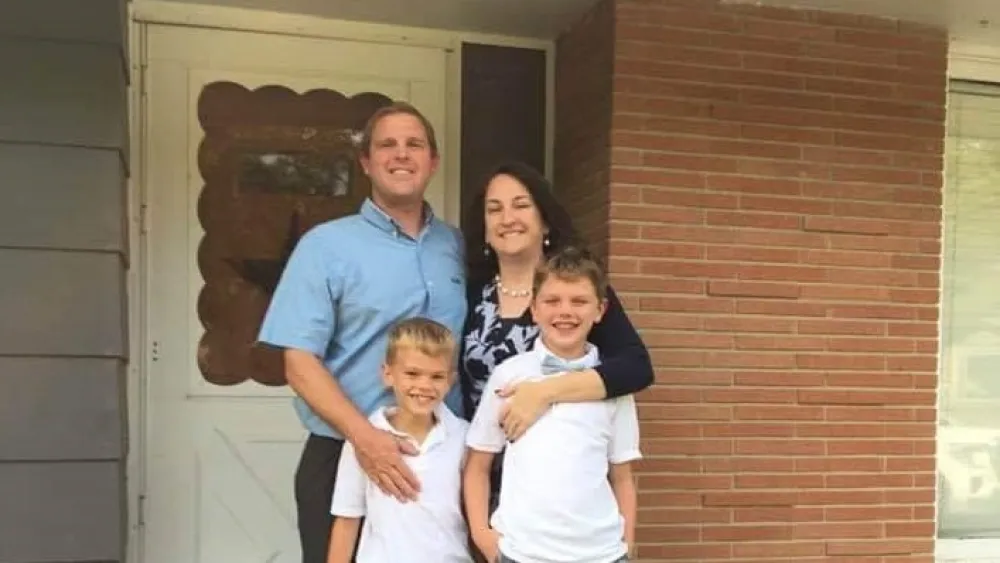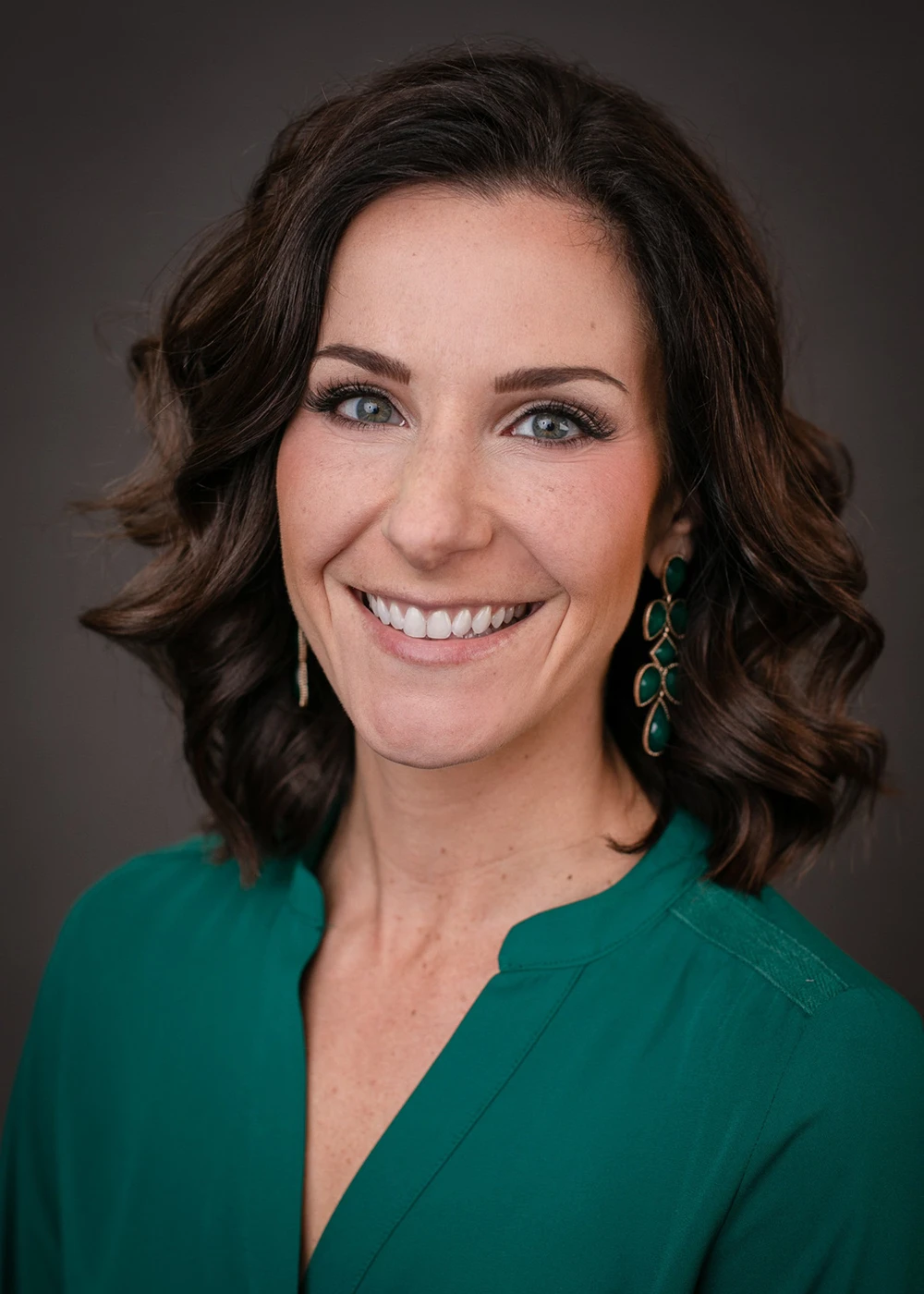
Inspiring Stories
Complex Crohn’s Disease Patient Finds ‘Consistently Great Care’ at Methodist
Published: Dec. 13, 2021

One could never tell by his exceedingly upbeat attitude, but Kyle Frans – a young, active husband, father of two, substitute teacher and Crete City Council member – has been battling health challenges since high school.
“Constant pain, diarrhea, bowel issues, getting weak – which is weird when you’re 18 years old and that doesn’t go away. I knew it was a chronic illness,” Kyle said of his Crohn’s disease – an inflammatory gastrointestinal condition often marked by debilitating complications. “But here we are, 20 years later, and I’ve never heard that magical remission word.”
Making light of his condition, Kyle said it’s forced him to become somewhat of a soup and Jell-O connoisseur – rarely getting to eat the foods most people love, like salads, red meat, fried foods, peanuts and popcorn.
“Stuff that I call shrapnel,” he said. “It just goes through me and destroys me.”
His case, so complex, it’s been discussed a number of times among a group of area gastrointestinal experts – including Methodist providers – who meet once a month to discuss the best, most individualized treatment options available for patients.
“It’s helpful to get other opinions – especially with patients who’ve almost maximized their medical therapy,” said Helen Fasanya-Uptagraft, MD, Kyle’s gastroenterologist with Midwest Gastrointestinal Associates (MGI).
More Than a Surgical Approach
Over the course of several years, Kyle’s undergone four bowel procedures – including two resections, or surgeries to remove part of his bowel – a partial thyroidectomy and immunosuppressive complications that led to brittle bones and necessary stem cell therapy at Mayo Clinic in Rochester, Minn.
Another hospital stay wasn’t exactly something he was looking forward to in October, when a routine colonoscopy convinced his doctors that yet another procedure was necessary.
“He developed a narrowing in his small intestine related to inflammation and scarring from his Crohn’s disease,” said Zachary Torgersen, MD, a Methodist colon and rectal surgeon. “Because of that, he was having bowel blockage symptoms.”
With the help of Michael Schafer, MD, a gastroenterologist with MGI, Dr. Torgersen was able to avoid another resection. Instead, Dr. Torgersen performed a strictureplasty – or bowel widening procedure.

“That made my day,” Kyle said optimistically. “Because now, I still have a little bit of colon left to work with if I ever need another surgery. But aside from the procedure, Dr. Torgersen was just amazing. He was very thorough. He never rushed away from me, and he was always there to answer questions.”
According to Dr. Torgersen, it’s all part of a very intentional approach to care. Because when it comes to treating complex Crohn’s patients, he believes “walking in their shoes” is of utmost importance.
“You have to have a little bit of insight into what they deal with on a day-to-day basis and what they’ve been through,” Dr. Torgersen, said. “Find out what makes them tick, what they like doing and what they’re interested in getting back to doing. It’s a really tough thing to go through all the time. But by building rapport, you can provide encouragement that’s specific to them.”
Meeting Goals, Addressing Vulnerability
Dr. Torgersen wasn’t the only one who provided Kyle ample encouragement during his hospital stay.
Tracey Maloley, BSN, RN – a Methodist Hospital oncology nurse – occasionally provides postoperative care for patients with complex conditions.
“I’ll be honest – I was pretty hesitant going into this hospital stay, with COVID and everything. I know these people are stressed and tired, but boy, she really blew me away,” Kyle said of Maloley. “She was one of the nurses you come across only every so often. She knew what worked and was constantly proposing ways to make me feel more comfortable. At the same time, she still encouraged me to get up and walk – even when I was hurting. Because she knew that’s how I’d get out of there quickly – and that was my goal.”
“That’s always our goal, too,” Maloley said. “I always tell my patients, ‘I’m going to give you a lot of tough lovin’.’ Because it is. It’s tough to tell them what they need to do even when I know they’re in pain. But I know fighting through it now will make them that much stronger when they go home. I mean, I can do everything on my end to help control that pain temporarily, but if they’re not putting in the work, what good does any of it really do? Only the patient can get their body used to what it needs to be doing.”
Maloley’s “tough lovin’” was accompanied by a certain softness that really shined amid Kyle’s vulnerability.
“Short bowel syndrome,” Kyle said. “I had that as I was leaving the hospital. I mean, I’m used to diarrhea, but it’s a much worse diarrhea. It’s extremely embarrassing. You just feel so … worthless. But I really didn’t feel that at all at Methodist. Maybe it’s because I’m so used to it, but everyone was so professional about it. It was really easy to be myself and just kind of let them do their work.”
“That’s the biggest thing – making patients feel comfortable right away,” Maloley said. “I know with him, I just told him, ‘Hey, if something happens, it’s not a big deal. You having an accident is the least of my concerns. I know it’s probably uncomfortable to even have to listen to me say this to you, but we truly just want you to focus on feeling better.’”
Relationship-Based Care
What Kyle most appreciated about his hospital stay was the bond he created with his entire care team – “the doctors, nurses, even the cleaning ladies.”
He added: “We were basically friends by the end of it. And that was nice. Every one of them really seemed to care about me. We bonded over our kids, Halloween and trick-or-treating, and how bad Husker football is.”
As a result, Kyle was able to maintain his sense of humor. Even though he’s never needed much help with that, he said it’s important that he never loses it.
“I learned early that if you get down, nothing good comes from that,” he said. “Especially when you’re in the hospital. And when you’re surrounded by people who don’t take the time to build that rapport with you, you just start to feel like part of their job – like one more thing they have to do. I never felt that at Methodist.”
What he did feel was The Meaning of Care.
“I felt it, for sure,” he said. “I mean, when I tell people about Mayo, it’s a whole other world up there. But this was as close as I’ve ever had to Mayo care. And I don’t even think people believe me when I say that. But everyone was on the same page. There was no miscommunication. Everyone was working toward one goal – to get me better. Everyone was there for me.”


